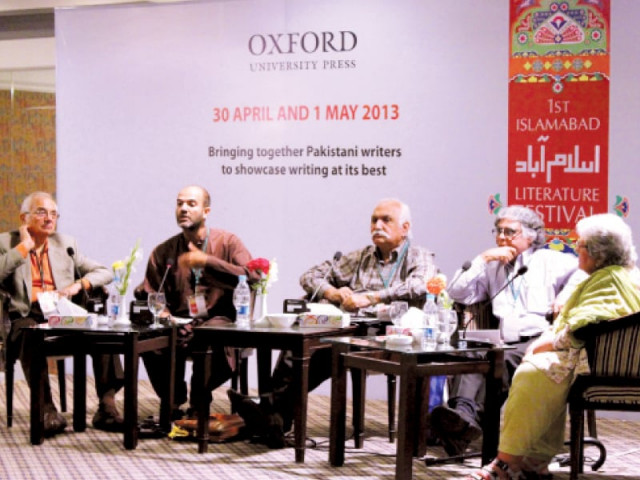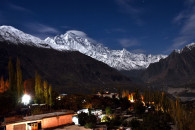Dynastic politics bad, ‘uniform’ politics worse
'Dynastic politics, considered a necessary evil in an illiterate nation, has always been a beloved talking point'

Dynastic politics, whether considered a necessary evil in an illiterate nation, or an evil necessitated by the ruling elite to perpetuate their control, has always been a beloved talking point.
However, opinions usually derail the conversation from its factual basis. The session on Dynastic politics at the Islamabad Literature Festival was also derailed. Fortunately though, it was by fact, not opinion.
Sorry to throw a spanner in the works, but no one is talking about the biggest political dynasty of all --- the Pakistan Army.
That was Aasim Sajjad Akhtar, QAU professor and Awami Workers Party leader, reminding his fellow panellists that for all the talk of Bhuttos, Sharifs, Gandhis, Makhdooms and others, the focus should be on the ‘family’ that is “the largest landowner in the country, the owner of the largest corporation, and...”
The lights went out.
“Obviously my opinions aren’t very popular”, Akhtar quipped, realising no one heard the end of the statement.
Earlier, the moderator, journalist and political analyst Babar Ayaz, kicked off the event by introducing the speakers, educationist Hamida Khuro, Akhtar, Pakistan Tehreek-e-Insaf member and former diplomat Ashraf Jehangir Qazi and journalist Ghazi Salahuddin, who came racing in to the hall just before the actual discussion started, apologising profusely.
Ayaz started by stating the significance of dynastic politics in the Pakistani context due to the ‘love’ the middle class has for the products of such a system. However, he said, we are not the only place with dynastic influences, citing other countries from the region and developed countries like the US and England.
He asked Khuro why we give preference to lawyers and doctors who come from families where the professions are a ‘family practice’, but not politicians.
Khuro replied that historically, in most places, governments are in the hands of dynasties and monarchies. “Meritocracy is a middle class, post-industrial revolution concept,” she said, adding that the apprenticeship factor, or learn from the father, matters. For most politicians it is simply a family trade and name recognition is a factor, Agendas matter, but the name is always there.”
Salahuddin was asked to whether dynastic politics were bad for Pakistan. He ran off an anecdote from a recent conference in South Korea. “We were talking about leaving military rule for democracy. In February, the daughter of the former military dictator became president. The name was recognisable, and in the Pakistani context, dynastic politics is based on charismatic leadership,” he said, and gave regional examples such as Sirimavo Bandaranaike, Indira Gandhi, and Benazir Bhutto.
Qazi spoke of dynastic politics as “a form of class warfare, which military intervention adds to by strengthening dynasties. The military itself is a meritocracy, but doesn’t act as one when it rules.”
He added that the focus of military rulers and, political masters is different. Changing politicians can change the focus, but the military dictator’s mindset is always the same. Whoever the dictator may be, it is always a disaster, he said.
Later, to a question on the ‘mullah dynasty’, Qazi said secularism is wrongly translated for the masses as irreligiousness, whereas, quoting the poet Iqbal, he explained the actual meaning is politics based on knowledge of the world.
Akhtar gave an example of the military’s abuse of the perception it is pro middle class. “The army has been in power forever, inheriting it from its colonial predecessor. It claims to be pro-middle class and slams dynastic politics, but acts the same. The middle class is happy when generals take over and claim they will clean up the system, but six months later, the generals are aligned with the same Chaudhrys and Mirs.”
Published in The Express Tribune, May 1st, 2013.



















COMMENTS
Comments are moderated and generally will be posted if they are on-topic and not abusive.
For more information, please see our Comments FAQ